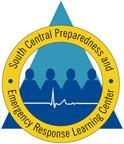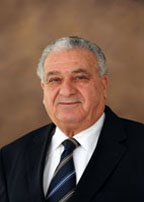
Environmental Sampling and Monitoring in a Disaster
Course Description:
In the event of a natural or man-made disaster, it is anticipated that the first several days will be dedicated to emergency response and rescue operations. Responding to disasters must be a well coordinated effort between the private and public sectors. Local, state and federal environmental health teams must include experts in all aspects of environmental health if and when available. This course will discuss environmental sampling and monitoring procedures for water, air, soil and sediment. Video clips demonstrating the sampling procedures are also included.
Target Audience
Academic Faculty/Staff, Federal Government Employees, State Government Employees, Local Government Employees, Non-Government Employees and Students
Learning Objectives
- Distinguish types of sampling
- Explain sampling protocols
- Describe field sampling procedures
- Identify methods of sample analysis
- Describe modes and methods of environmental monitoring
Instructor:

Assaf Abdelghani, ScD, MSPH
Dr. Abdelghani is a professor and former chair of the Department of the Environmental Health Sciences at Tulane University School of Public Health and Tropical Medicine, New Orleans, Louisiana. His current research and teaching focus is on national and international environmental health concerns including the impact of chemical substances in the environment. Dr. Abdelghani is also an instructor with the South Central Center for Public Health Preparedness, a CDC funded center which provides continuing education to the public health workforce. His courses focus on food safety as well as sampling and monitoring following a disaster.
Dr. Abdelghani has worked for national and international health organizations and ministries of health in many countries including Central American and Middle Eastern countries, Taiwan, Kazakhstan, and others. His responsibilities included assessment of the impact of biological and chemical contaminants on human health and the environment, control of communicable disease, health education, immunizations, food and water protection, air quality, solid waste disposal and control of vectors of disease. He is also the director of the Environmental Health Laboratories at the School of Public Health and serves on the editorial board of the Journal of Environmental Toxicology and Reviews on Environmental Health. Dr. Abdelghani has more than a 120 scientific Publications and national and international presentations.
Available Credit
- 4.00 Participation/CETulane Professional and Continuing Education (PaCE) awards 4.00 hour(s) of credit for completing Environmental Sampling and Monitoring in a Disaster
Price
Required Hardware/software
System Settings
This course is designed to work most effectively if your computer and internet connection meet certain minimal requirements. This course can be accessed using a Windows 10 PC or a Mac with High Sierra1, Mojave, or Catalina. Pop-up blockers should be disabled when viewing the course. Internet Explorer 11 (for Windows 10), or the current version of Google Chrome, Mozilla Firefox, or Apple Safari (for Windows 10 and or Mac) is required. Many of our courses require Java and JavaScript enabled.
Links to External Websites
Links to websites outside this course will open in a new window or tab. Some browsers may minimize the course window. If this occurs, maximize the course window to return to the course.
Adobe Acrobat Reader (for desktops and laptops)
Adobe Acrobat Reader is required to access some documents in this course. If you need to download a free copy of Acrobat Reader, click here.
Internet Connection Speed
A minimum download speed of 1.5 Mbps is recommended for an optimal experience, which is commonly the speed associated with a basic DSL or a cellular/satellite connection. A faster connection, such as cable or fiber service, with further enhance your online experience. A Wi-Fi connection is generally acceptable, but it is dependent upon one of the two services mentioned above. You can check your internet connection speed at http://www.speedtest.net/.

 Facebook
Facebook Twitter
Twitter LinkedIn
LinkedIn Forward
Forward